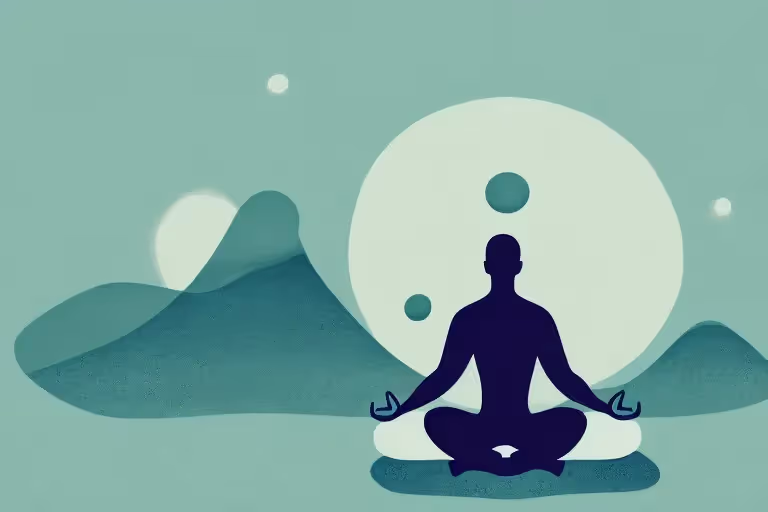I teach a class about getting over imposter syndrome, and it's always amazing how similar we humans are when it comes to feeling as though we don't belong. Students will come in from all walks of life and have various goals and backgrounds. Despite achievements, many will report feeling like a fraud or suffering from self-doubt. It's always amazing how even the most successful people can still feel this way - as though they do not belong or need to work a little harder.
Despite training and accomplishments, we can feel insecure or as though we have not earned our place at the table. This is imposter syndrome, a belief rooted in self-doubt that says your skills and offerings are “not enough” or that you are a “fraud.”
And guess what? It's not true. Moreover, these thoughts do not have to run your life. I put the internal dialogue in quotes because the inner critic can often feel like a voice that is not ours. The truth is, it isn’t our authentic self at all.
We can change the negative belief system behind imposter syndrome with mindful awareness and meditations focused on building our sense of self. In this article, we'll discuss how and explore the phenomenon of imposter syndrome in the following ways:
- Imposter syndrome in personal and professional contexts, including at work
- Possible causes and effects of imposter syndrome on mental health
- The connection between imposter syndrome and the inner critic
- Common thought patterns and behaviors of those suffering from imposter syndrome
- The role of mindfulness in battling imposter syndrome and creating self-awareness
- How mindfulness can break the imposter syndrome cycle
- Simple mindfulness exercises you can try right now to overcome imposter syndrome
Recognizing Imposter Syndrome in Yourself
When and where do you feel like you can't quite be yourself? This is where impostor syndrome comes in. Self-doubt can show up in many ways, such as perfectionism, procrastination, comparison, burnout, or a simple lack of confidence and feelings of insecurity.
To address self-doubt, understanding when it arises and why is a necessary step. So is allowing yourself rewards and joy. Because some people feel imposter syndrome when they have achievements and others do so when they feel failure, I recommend writing or reflecting to determine when imposter syndrome shows up the most in your life.
Quick Exercise: Journal about how and when impostor syndrome shows up for you.
For many people, such feelings surface at work primarily; negative self-talk can also surface in relationships or when pursuing passions, such as writing a book. Interactions and scenarios at work that may trigger imposter syndrome feelings could be a boss who undermines or ignores your accomplishments or another person you are always comparing yourself with.
Like many stressful and self-minimizing thoughts, reminding ourselves of our lack is detrimental to our health. Imposter syndrome is linked to depression and anxiety, even amongst the most accomplished and highly successful among us. It is not rooted in logic but disproportionately influenced by society and unrealistic expectations that come from ourselves and others.
New situations may stoke old fears; future sensations of inadequacy might reawaken long-forgotten insecurities. But the more we are aware of our anxieties, the more we communicate about them, and the smarter we are about how they operate, the easier they’ll be to shrug off the next time they pop up. —Amy Cuddy
The Role of Mindfulness in Overcoming Imposter Syndrome
Mindfulness is effective in addressing mental health issues, such as anxiety and worry or rumination because it trains the practitioner to reframe self doubt and step into the role of the observer. This means learning and training ourselves to watch our thoughts without judgment or further exasperating negativity.
If you’ve ever had a negative thought, then you thought about how you shouldn’t have negative thoughts, you know the vicious cycle the mind can get in when ruminating. Mindfulness helps to interfere with unhelpful narratives by helping us to feel more than think our way toward calm. When we practice mindfulness, we can watch all thoughts with compassion by not identifying with them. We understand that we are not our thoughts. They are merely passing by.
Mindfulness Techniques for Managing Imposter Syndrome
Let’s explore a few mindfulness meditations and mindful breathing techniques to support a more compassionate view of self and ease the feeling of imposter syndrome.
- Mindful body scan meditation: One of the best ways to get present is to do a body scan meditation. This practice can be done anywhere. To begin, set a timer for 5 minutes. Close your eyes or settle your eyes closed. Focus all your attention on the very top of your head. Slowly moving down the face and neck, notice how the body feels. Notice all the sensations with meditative attention. Scan down the shoulders and chest, the back and belly, and breathe with focus. Bring your attention to the legs and trace down to the bottoms of your feet. As you trace awareness down the body, you will have thoughts arise. Let them. Even negative thoughts such as self doubt or comparing yourself to others. Welcome them even. Adopt the role of the observer, acknowledge them, and then bring attention back to the body. After doing a body scan for the first time, see if you can start again, slowing down and tuning into the body just a little more. When you are done, notice how your mindset has shifted.
- Listen to a guided meditation about the inner critic or imposter syndrome: As you listen, allow your personal feelings to arise with mindful awareness. Do not run from them, and trust that the closer you examine them, the weaker they become. Here is a 9-minute Inner Critic meditation to start. This is a visualization for designed to dissolve blocks you might be facing with a unique combination of breath, focus, and imagination.
- Take a mindful break from social media: While social media can be an excellent way to connect with others, many find their confidence waning when they see all the exciting things their friends are doing. We all realize that social media is not real life, but even knowing this, our brains easily start comparing and contrasting our lives against those we follow. Even the most successful person can feel insecurity when surrounded by messages that they should be more. According to UC Davis, social media can lead to depression, anxiety, and a fear of missing out. By setting time limits and ensuring that when you are on social media you are aware, you can find yourself less likely to slip into negative thinking. I even recommending trying a digital detox during times you might otherwise be on social media, just to see how it impacts your mood.
- Meditate on the very concept of imposter syndrome: The Stoics had a practice called negative visualization. Essentially, it is the practice of asking yourself, "What's the worst that can happen?" This is an excellent way to dialogue with insecurity and reframe self-doubt. When we feel low self-confidence in a scenario, asking ourselves why and what is the worst could happen if we showed up as our authentic selves anyway can sometimes remind us how capable we are. Try this three-question exercise for just 5 minutes. Set a timer and ask yourself to consider all your accomplishments to date. Give yourself a full minute. Once you have this list, ask yourself where you feel like an imposter or fraud. Again, give yourself a full minute. Finally, ask yourself what it would feel like if you weren't ready? What is the worst that could happen? Sometimes the answer is comical, sometimes scary. Sometimes, it can feel like you are revealing a new perspective. Whatever comes up for you, sit with it mindfully, with compassion and breath. And when your timer sounds, take a deep breath and return to your list of accomplishments.
What’s beautiful about mindfulness practices is that you are not limited to the exercises above. You can read this article mindfully with the right intention, focus, and acceptance. Pick an ordinary occurrence in your life and experiment by adding mindfulness to it by simply paying a little closer attention. Once you learn to bring mindfulness to daily tasks, you begin to train yourself to notice what you might not have seen, heard, or experienced before. Allow your mind to slow and feel the presence that arrives.
As you can see, living with mindfulness is not just about meditating. You can bring mindfulness into many aspects of your life where you feel lacking in competence or even when you've feared failure. The benefits of incorporating these techniques are great, but it does take practice. Experiment with the mindfulness exercise that resonates for you now and see how it goes. Practicing mindfulness to remind yourself that you belong, you deserve, and you are competent is an excellent way to move beyond self doubt and into a place of sustainable self-confidence and authenticity.
You have unique gifts to offer the world, and your journey looks like no one else's, so reflect on all that makes you unique. List everything you can, reminding yourself of what you can and have done. You can think beyond your career to what you offer at home or in the world in many ways. Often, when we recognize ourselves as competent in one area of life, we can better recognize what we deserve in another. Success and failure alike can be scary, and both can lead to feelings of imposter syndrome. Just remember that it is natural, and others around you may have felt this way at one time themselves. With mindful awareness, it's a phenomenon that does not have to last in your life; rather, it's simply a stepping stone to reminding you of all you deserve.
At Aura, 97% of people find more calm in just three days, which speaks to the power of meditation and mindful practices. If you’re looking for more guidance, community support, and resources to support anxious thoughts, join me at Aura, the most holistic meditation app on the market, for 30 days free.



.webp)







.avif)

%20(1).avif)


.avif)
.avif)
.webp)


.avif)


















































































































.avif)

















.svg)








